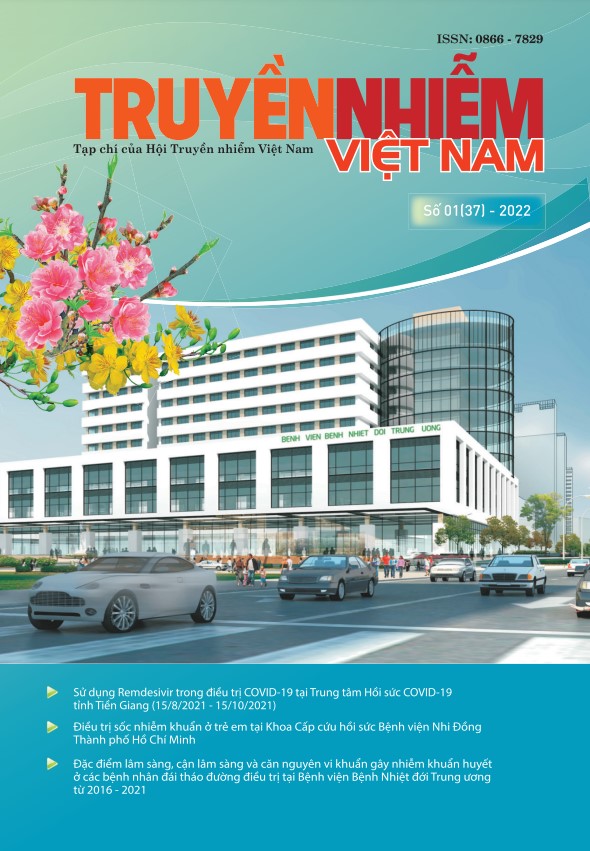MICROBIOLOGICAL CAUSES AND TREATMENT RESULTS OF ARDS PNEUMONIA PATIENTS RECEIVING ECMO INTERVENTION IN NATIONAL HOSPITAL FOR TROPICAL DISEASES
Main Article Content
Abstract
Objectives: To review microbiological causes and treatment results in ARDS pneumonia patients undergoing ECMO intervention at the Central Hospital for Tropical Diseases.
Subjects and methods: A cross-sectional description of 34 patients with severe ARDS pneumonia who underwent ECMO intervention at the Central Hospital for Tropical Diseases from January 2014 to the end of August 2021.
Results and conclusions: Etiology The most common microorganisms causing ARDS pneumonia were viruses, accounting for 64.7%: SARS-CoV2 was 41.2%, influenza A H1N1: 17.6%, Corona was 5.9%. Next is the undetermined cause with 23.5%. Bacterial etiology was 8.8%: Acinobacter baumanii, Staphylococcus aureus and Stenotromonas maltophilia were all 2.9%. The mean ECMO intervention time was 19.7 ± 17.9 days. The mean time stay at ICU was 37.6 ± 27.3 days. The mean time stay at hospital was 39.8 ± 27.7 days. The most common complication is bleeding (79.4%). Complications of leg bleeding, cannus occlusion, coagulopathy were all 23.5%, infection was 17.6% and there were no complications of thromboembolism. 52.9% of patients successfully quit ECMO. The survival rate was 52.9%. Thus, ECMO is an effective measure in the treatment of severe ARDS pneumonia.
Article Details
Keywords
Microbial etiology, ARDS, ECMO


